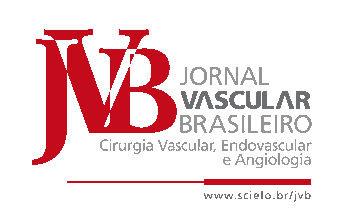Abstract
COVID-19 is a potentially serious respiratory disease caused by the SARS-CoV-2 virus that involves an increased risk of venous thromboembolism (VTE). Its pathophysiology is apparently related to an exacerbated inflammatory process and coagulopathy, verified by an increase in D-dimer, fibrinogen, and fibrin degradation products. Occurrence must be monitored, prevented, and treated according to existing recommendations and guidelines. The increased risk of thrombosis, and the association between this phenomenon and the most severe forms of the disease and death have prompted some groups to propose a more aggressive prophylactic and therapeutic approach. However, the risk-benefit profile of this type of conduct has not been defined and cases must be assessed individually, with a multidisciplinary approach. In this study, we review the main studies and evidence available to date on diagnosis, prophylaxis, and treatment of venous thromboembolism in COVID-19 patients.
Keywords:
COVID-19; SARS-CoV-2; thrombosis; anticoagulant; disseminated intravascular coagulation; prophylaxis
